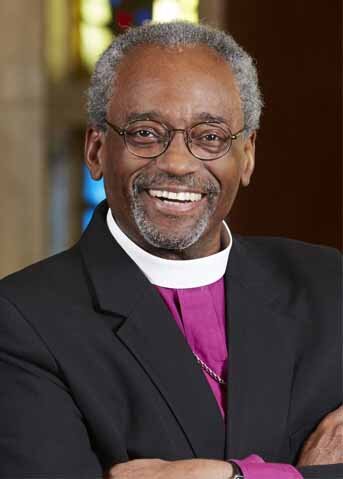I'M NO THEOLOGIAN, forgive any blunders on that ground; but what has truly surprised me over many years is not the triumph of trends, which flicker and fade like shadows at summer twilight, but rather the survival of spiritual hunger. This spiritual hunger, and a religious 'force-field' that springs from it, is the human drive to serve, and to help others. It's so very much greater than I had imagined, and I've seen it blaze forth in places far darker, more threatening, than I could have imagined.
The surprise, I suppose, was my surprise. For this 'force' has been there, after all, from the very beginning of Christianity and mysteriously, seems never to weaken nor grow weary. But I do wish to tell you something of what I have observed as a reporter, and [have] finally come to believe very deeply.
For years I've been struck by the rather blithe notion spread in many circles, including the media and taken up by a rather large section of our younger population, that organized, mainstream Christianity has been reduced to a musty, dimly-lit backwater of contemporary life, a fading force. Well, I'm here to tell you, from what I've seen from my 'ring-side seat' at events over decades, that there is nothing further from the truth.
Christianity in action
I've found there is no movement, or force, closer to the raw truth of war, famines, crises and the vast human predicament, than organized Christianity in action. And there is no alliance more determined and dogged in action than church workers, ordained and lay members, when mobilized for a common good. It is these Christians who are right 'on the front lines' of committed humanity today and when I want to find that front, I follow their trail.
It is a vast front, stretching from the most impoverished reaches of the developing world to the hectic struggle to preserve caring values in our own towns and cities. I have never been able to reach these front lines without finding Christian volunteers already in the thick of it, mobilizing congregations that care, and being a faithful witness to truth, the primary light in the darkness, and so often the only light.
Now this is something the media and government officials rarely acknowledge, for religion confuses many and anyway, we all like to blow our own horns. So front line efforts of Christianity do not usually produce headlines, and unfortunately this feeds the myth that the church just follows along, to do its modest bit.
Let me repeat, I've never reached a war zone, or famine group or crisis anywhere where some church organization was not there long before me: sturdy, remarkable souls, usually too kind to ask 'What took you so long?'
I don't slight any of the hard work done by other religions or those wonderful secular NGOs I've dealt with so much over the years. They work closely with church efforts, they are noble allies. But no, so often in desperate areas it is Christian groups there first, that labour heroically during the crisis and continue on long after all the media and the visiting celebrities have left.
Now I came to this admiring view slowly and reluctantly. At the start of my career, I'd largely abandoned religion for I, too, regarded the church as a rather tiresome irrelevance. What ultimately persuaded me otherwise and I took a lot of persuading was the reality of Christianity's mission, physically and in spirit, before my very eyes. It wasn't the attraction of great moments of grandeur, although I admit covering this pope [then Pope John Paul II] on six of his early trips abroad, including his first one to Mexico and then epic returns to Poland, certainly shook any assumptions I had of Christianity as a fading force.
No, the millions upon millions gathered was impressive; but I was more moved by quiet individual moments of character and courage that seem to be anchored to some deep core within Christianity.
Communism cracks
I remember a dim stairwell in Gdansk, Poland. As many of you remember, the first unbelievable crack in the mighty Communist empire, which had so often proclaimed triumph over religion, occurred in Poland in the early 1980s when the Solidarity Movement, supported by the church, rose to challenge tyranny under the leadership of a most unlikely little shipyard electrician, Lech Walesa.
Later he'd win the Nobel Prize and become president of Poland; but when I met Walesa he was isolated, had been jailed, and his life was so often threatened I thought he was a dead man walking. We all assumed security forces were arranging one of those convenient 'accidents,' that really did happen in that frightening climate of oppression just like the movies.
A few of us met him alone on this stairwell, as he slipped out to Mass. "Are you frightened?" one of us asked. He stopped, looked surprised at the thought, then answered in a voice of steel: "No, I am afraid of no one, and nothing only God." And he walked out alone into the night.
It was a transcendent moment. Here in this dingy stairwell was the purest courage and conscience backed by Christian faith that I suddenly realized no force of empire or terror could ever extinguish [full article here].
Former CBC TV journalist Brian Stewart covered many international crises as a foreign correspondent, reported from ten war zones, and has won countless awards. He is now a Distinguished Senior Fellow with the Munk School of Global Affairs, University of Toronto. He gave this as a convocation address at Knox College, University of Toronto, in 2004.














